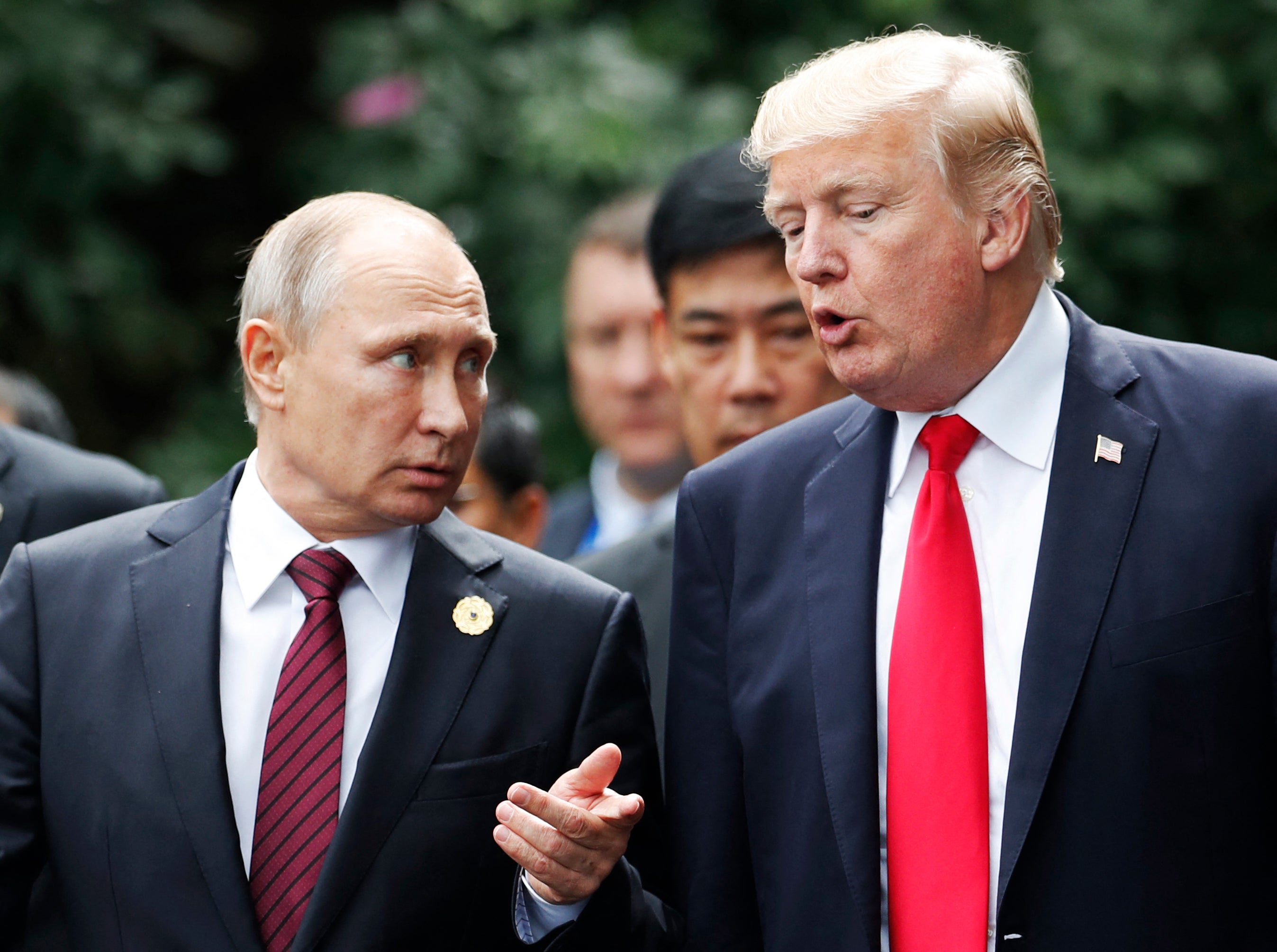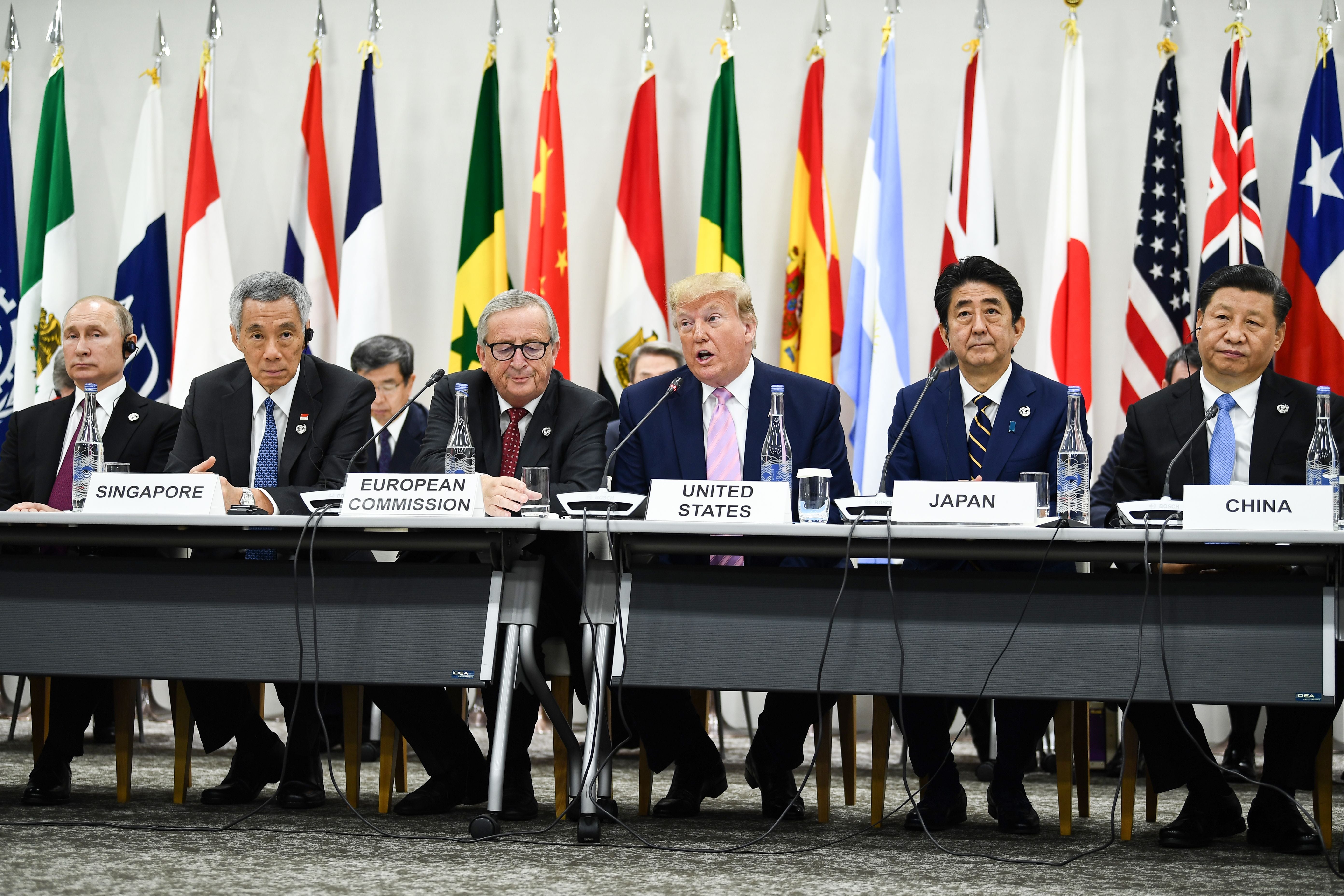General Sir Richard Shirreff: Starmer is right, we need to put boots on the ground in Ukraine
We can’t rely on Trump to keep us safe, says former deputy Supreme Allied Commander Sir Richard Shirreff. But to meet our needs without America’s support we have to find courage, bold leadership and make sacrifices


There have been many words used over the past couple of days to describe the shabby deal Trump is planning to do with president Vladimir Putin. Few have captured the emotions of many, more than the words of a British official, who said it had gone down “like a bowl of cold sick”.
Certainly, this week’s pronouncements by Trump and his acolyte Pete Hegseth, the former Fox News anchor who is now the US secretary of defence, have generated anger and despair in Ukraine and among its supporters. But they have also confirmed, with perfect clarity, what has been clear to European members of Nato and Canada since Trump returned to the White House: America, for 80 years since the end of the Second World War, the guarantor of European security, can no longer be trusted as an ally.
European Nato members have, in many ways, created the conditions for America’s abdication of leadership of the “free world” by their willingness to freeload off American largesse. They must now look to themselves and look after their own, and Ukraine’s security. As General Slim said when commanding troops in Burma in the face of the Japanese invasion in 1942: “God helps those who help themselves.”
It is not without irony that America’s craven appeasement of Putin comes at the start of the Munich Security Conference, a repeat of Britain and France’s betrayal of Czechoslovakia in Munich in 1938. A preening Trump may claim he is the master of the deal, but in conceding Ukrainian territorial sovereignty and Nato membership over the heads of the Ukrainians and Europe, he has, at a stroke, strengthened Putin and demonstrated his weakness.
We should not be surprised. It was Trump who set up the 2021 collapse of Nato’s mission in Afghanistan with his deal with the Taliban in 2020, from which the Afghan government was also excluded. Hegseth, too, has played into Russian hands by excluding American troops from any peacekeeping enforcement effort, stating that any European force would have to operate without the ultimate security guarantee of Article 5 of the Washington Treaty.
So how should we in Europe, together with Canada, respond? First, we must recognise Russia for what it is, rather than what we would like it to be. Whatever its cultural virtues, it is a cruel, vindictive and murderous state that has only ever been an empire. Imperialism is woven into its DNA; Russia’s story is one of expansion, of taking over neighbouring states, forcing them into colonial submission until it overreaches itself and contracts, and starts again. Integral to this, is the notion that Ukraine has no right to exist as a sovereign state and that Russia can never be the country it has a right to be if Ukraine is independent.
Make no mistake, Russia will not stop at Ukraine and Trump has, by his words, paved the way. Single-handedly he has created the conditions for Putin to achieve his principal foreign policy aims. First, the annexation of the four eastern oblasts of Ukraine and establishment of a puppet government in Kyiv that will do his bidding. This will, in turn, set the conditions for him to move on to other former Soviet states, such as Moldova, Georgia and even Romania.
Second, the establishment of a new Yalta under which Russia dominates, once again, through the rollback of Nato from Eastern Europe and the abandonment of our allies to Putin’s new empire. Third, the neutralisation, and potentially the destruction of Nato, an alliance Putin sees as a direct threat to Russia. Fourth, the decoupling of America from European security and defence.

We should not be surprised. Trump has, after all, already stuck a dagger into the heart of allied cohesion with his threats to two loyal Nato allies, the takeover of Greenland and the incorporation of Canada as the 51st State.
Not only must Europe and Canada recognise the long-term threat to transatlantic security posed by Russia, but under no circumstances should they accept America’s appeasement of Putin and abandonment of Ukraine. Thus far, European leaders – from Kaja Kallas, the redoubtable former prime minister of Estonia, now the European Union’s foreign policy chief, to Nato secretary general Mark Rutte and the UK’s defence secretary John Healey, have been unequivocal: no appeasement of Putin, no deal without Ukrainian acceptance and continued support for Ukraine. To his credit, Keir Starmer has also stated unequivocally his support for Ukraine’s membership of Nato.
But more is needed. Words must be translated into “action this day” as Churchill would have directed. Nato and the EU, without America but in conjunction with Ukraine and other partners like Australia and South Korea, must design a strategy to support Ukraine and impose such unacceptable pain on Russia that Putin understands he can’t get his way.
This means European members of Nato coordinating efforts to give Ukraine the military means needed. The reality is that every time Ukraine’s partners have escalated support, Putin has rattled the nuclear sabre and every time he has backed down. Add to this the ammunition, tanks, artillery, mine warfare and other capabilities needed for Ukraine to defend itself.

Concurrently, we must work with Ukraine to support the reforms needed to build a new model Ukrainian army, which has the manpower, command and control, training and logistics to achieve this. It also requires Europe to harness its technological genius in every way possible to deliver new and battle-winning capabilities to Ukraine, as well as reflect on the way that Ukraine has harnessed its own technological ingenuity such as autonomous vehicles, state-of-the-art drones, AI-enabled kill chain from intelligence and surveillance to strike.
In the short term, if a ceasefire is brokered, an implementation force will likely be required to enforce peace along 1,000km of Ukrainian/Russian front line. This is not a task for a traditional blue beret, flag-waving UN force cobbled together from South America, Asia or Africa. Implementing a ceasefire will need mass, precision and scale unseen in Europe since the days of the Cold War, together with state-of-the-art fighting capabilities and the leadership, training and determination to fight boots on the ground if necessary.
Of course, the brutal truth is that this will come at a cost; treasury resources will be stretched to the limit and hard political decisions and sacrifice will be needed. However, this is no more than the sacrifices our fellow Nato members like Poland, Finland, Estonia, Latvia and Lithuania have already made. The bottom line is that these decisions have to be faced now if we are to be safe.

As an immediate action, the UK should take the lead in encouraging all Nato European nations to adopt Estonia’s proposal and set aside 0.25 per cent of GDP for a Ukrainian defence fund for the next four years. This would generate around €150bn.
Appeasers in Europe may scoff and say this is a chimera, it’s not possible without the US. I disagree. Of course, it would be better to have the US on board, but those days have gone, the world has changed utterly, and we can no longer rely on the Americans. We have to help ourselves.
Europe is rich: the combined GDP of Nato’s European members is 15 times that of Russia, and together it has the resources to develop the military capability needed to meet its needs without American support. But it will need courage, bold leadership and iron determination to make it happen. It will also need time. There can be no delay. Munich 1938 fired the starting gun for Britain’s preparation for the Second World War. Let Munich 2025 do the same to avoid a third world war. Only when a long-term deterrence of Russia is put in place can we ensure peace for several generations to come.
General Sir Richard Shirreff was Deputy Supreme Allied Commander of Europe from 2011 to 2014 and served in the British Army for 38 years.
Join our commenting forum
Join thought-provoking conversations, follow other Independent readers and see their replies
Comments

Bookmark popover
Removed from bookmarks